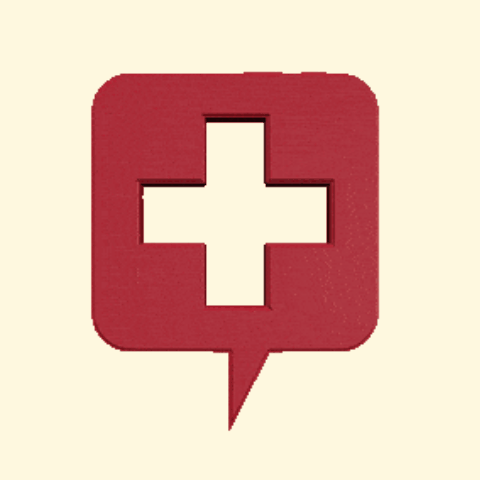Dr V. W. Verlekar
Effective Management Of High BP
CARDIOLOGY
Dr V. W. Verlekar
4/2/20241 min read


Introduction
Effective management of high blood pressure, also known as hypertension, is crucial for maintaining overall health and reducing the risk of serious complications. This article will discuss a comprehensive approach to managing high blood pressure, focusing on lifestyle modifications and medication.
Lifestyle Modifications
Healthy Diet
One of the key aspects of managing high blood pressure is adopting a healthy diet. A diet that is rich in fruits, vegetables, whole grains, lean proteins, and low-fat dairy products is highly recommended. The Dietary Approaches to Stop Hypertension (DASH) diet is particularly effective in lowering blood pressure. This diet emphasizes the consumption of fruits, vegetables, and low-fat dairy products, while reducing the intake of saturated fats and cholesterol.
Reduced Sodium Intake
Another important lifestyle modification for managing high blood pressure is reducing sodium intake. Limiting sodium intake to less than 2,300 milligrams per day (and ideally 1,500 milligrams per day) can significantly help lower blood pressure. This involves minimizing the consumption of processed foods, which are often high in sodium. Instead, opt for fresh, whole foods and use herbs and spices to enhance the flavor of your meals.
Regular Physical Activity
Engaging in regular physical activity is essential for managing high blood pressure. Exercise helps strengthen the heart and improves blood flow, which in turn helps lower blood pressure. Aim for at least 150 minutes of moderate-intensity aerobic activity or 75 minutes of vigorous-intensity aerobic activity per week. Additionally, incorporate strength training exercises at least twice a week to further enhance cardiovascular health.
Medication
Consultation with a Healthcare Professional
While lifestyle modifications play a crucial role in managing high blood pressure, medication may be necessary for some individuals. It is important to consult with a healthcare professional, who can assess your condition and prescribe the appropriate medication. He will consider factors such as your blood pressure readings, overall health, and any existing medical conditions before recommending the most suitable medication.
Types of Medication
There are several types of medication commonly used to manage high blood pressure. These include:
1. Diuretics: Diuretics, also known as water pills, help the body eliminate excess sodium and water, thereby reducing blood volume and lowering blood pressure.
2. ACE inhibitors: ACE inhibitors work by blocking the production of angiotensin II, a hormone that narrows blood vessels. By doing so, ACE inhibitors help relax and widen blood vessels, reducing blood pressure.
3. Beta-blockers: Beta-blockers reduce the heart rate and the force of the heart's contractions, resulting in lower blood pressure.
4. Calcium channel blockers: Calcium channel blockers prevent calcium from entering the cells of the heart and blood vessels, which helps relax and widen the blood vessels, leading to lower blood pressure.
5. Angiotensin II receptor blockers (ARBs): ARBs block the action of angiotensin II, similar to ACE inhibitors, but through a different mechanism. This helps relax blood vessels and lower blood pressure.
6. Centrally acting antihypertensive medications are a class of drugs that work in the central nervous system to lower blood pressure. They act on specific receptors or pathways in the brain to reduce sympathetic nervous system activity, which helps relax blood vessels and decrease the heart rate, ultimately leading to a decrease in blood pressure.
7. Alpha-blockers are a class of medications used to treat high blood pressure (hypertension) by blocking alpha-adrenergic receptors in blood vessels. By blocking these receptors, alpha-blockers cause the blood vessels to relax and dilate, which leads to a decrease in blood pressure. They are particularly effective in reducing peripheral resistance, making it easier for blood to flow through the vessels.
Compliance with Medication
It is crucial to take medication as prescribed by your healthcare professional. Skipping doses or stopping medication without consulting a healthcare professional can lead to uncontrolled high blood pressure and increase the risk of complications. If you experience any side effects or have concerns about your medication, it is important to discuss them with your healthcare professional, who can adjust the dosage or prescribe an alternative medication if necessary.
Monitoring and Follow-up
Regular Blood Pressure Checks
Regular monitoring of blood pressure is essential for effective management of hypertension. This can be done at home using a home blood pressure monitor or by visiting a healthcare professional. Keeping track of your blood pressure readings allows you and your healthcare professional to assess the effectiveness of lifestyle modifications and medication, and make any necessary adjustments.
Follow-up Appointments
Regular follow-up appointments with your healthcare professional are important to monitor your blood pressure and overall health. These appointments provide an opportunity to discuss any concerns, review medication effectiveness, and make any necessary changes to your treatment plan.
Lifestyle Maintenance
Managing high blood pressure is a lifelong commitment. It is important to maintain healthy lifestyle habits, such as following a nutritious diet, limiting sodium intake, engaging in regular physical activity, and managing stress. These lifestyle modifications, in combination with medication if necessary, can effectively control high blood pressure and reduce the risk of complications.
Conclusion
In conclusion, effective management of high blood pressure involves a comprehensive approach that includes lifestyle modifications and, in some cases, medication. Adopting a healthy diet, reducing sodium intake, engaging in regular physical activity, and taking prescribed medication can help control blood pressure and reduce the risk of complications. Regular monitoring and follow-up with a healthcare professional are crucial for assessing progress and making any necessary adjustments to the treatment plan. By implementing these strategies, individuals can effectively manage their high blood pressure and lead a healthier life.

